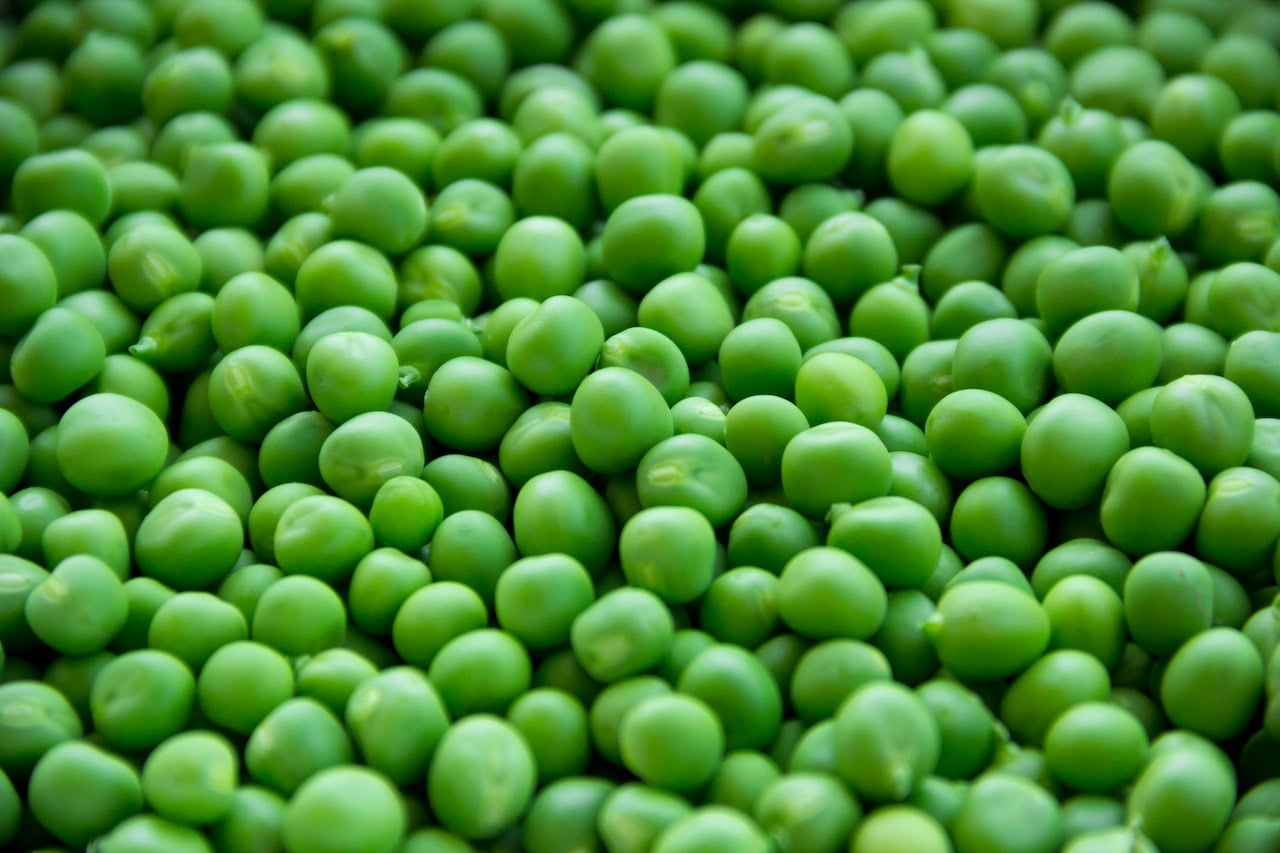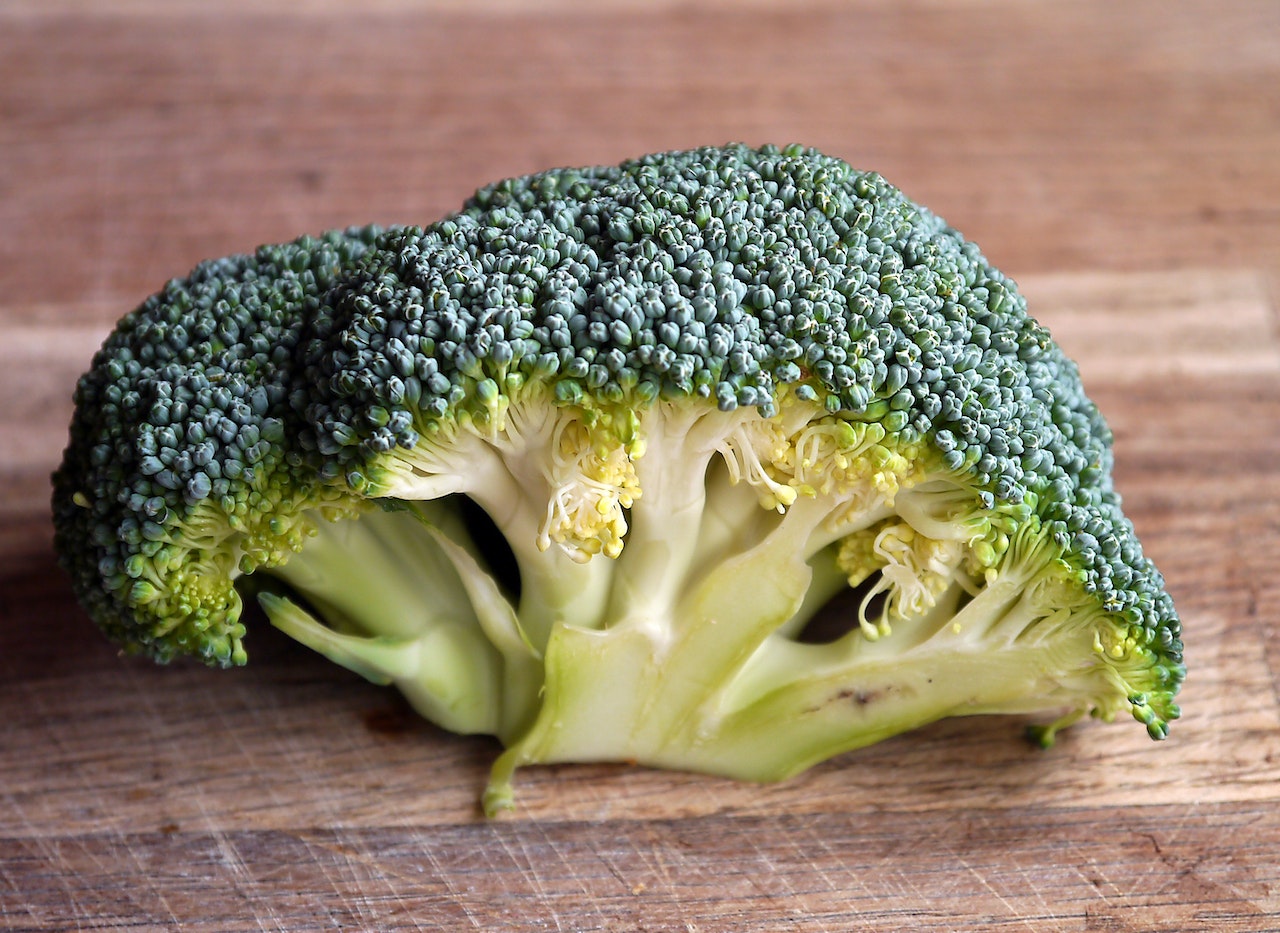As parents, we want the best for our little ones, especially when it comes to their nutrition. One way to ensure they're getting the proper nutrients they need to grow and thrive is by incorporating "supernutrient" or "superfood" options into their diets. These foods, known for their high nutritional value and health benefits, can help lay the foundation for a healthy lifestyle as they grow.
Babies can start consuming these nutrient-dense, healthy foods around 6 months of age when they are ready for solid foods. It is recommended to introduce a variety of healthy, pureed fruits and vegetables at first, and gradually add more textured and varied foods as they grow and develop.
Starting from the age of 1, solid foods will gradually take the place of much of the milk in a baby's diet. It is recommended to offer a diverse range of foods attractively and encourage the baby to feed themselves.
I. The best supernutrient healthy foods for babies and toddlers:
1. Bananas
Bananas are an excellent food option for babies and toddlers due to their high content of carbohydrates and fiber. These essential nutrients provide sustained energy for active little ones and support a healthy digestive tract. Additionally, bananas are very convenient for on-the-go families as they come in their own natural, easy-to-peel packaging.
When serving bananas to young children, it is important to make sure they are ripe and thoroughly mashed. This ensures that the bananas are soft enough for infants to safely consume and easily digest. As babies grow and develop, they can start eating chopped bananas as finger food, which provides a fun and interactive way for them to learn about new textures and flavors.
Most babies are ready for finger foods between the ages of 9 and 12 months if they have the dexterity to hold food items, have started to sprout some teeth, have an increased hunger in regular intervals, and show a reduced interest in pureed foods while expressing more interest in what adults are eating.
2. Sweet potatoes
Sweet potatoes are a nutritious and delicious food option for babies and toddlers, providing a wealth of essential nutrients including potassium, vitamin C, fiber, and beta-carotene. This powerful antioxidant helps to prevent certain types of cancer and neutralizes harmful free radicals in the body, making it an important nutrient for overall health and wellness.
One of the key benefits of sweet potatoes is their naturally sweet taste, which makes them a popular choice among babies. This, combined with their soft texture when cooked and mashed, makes sweet potatoes a great option for infants who are just starting to transition to solid foods. The smooth puree created by mashing sweet potatoes is easy to swallow and digest, making it a great choice for young children who are still getting used to the texture and consistency of new foods.
In addition to their health benefits, sweet potatoes are also easy to prepare and serve. They can be boiled, or steamed, and then mashed or pureed to create a smooth, easy-to-eat texture that babies and toddlers will love. Whether you're looking for a nutritious snack, a side dish, or an ingredient in a healthy and tasty recipe, sweet potatoes are an excellent choice for families looking to provide their little ones with a well-balanced and nutritious diet.
3. Carrots
Carrots are a healthy and flavorful food option for babies and toddlers, and they are packed with essential nutrients, including large amounts of beta-carotene, an antioxidant that gives carrots their distinctive orange color. This nutrient is important for growth and healthy vision, as it converts into vitamin A in the body.
One of the key benefits of carrots for babies and toddlers is their natural sweetness. Cooking carrots brings out this sweetness and makes them appealing to young children, who are naturally inclined to prefer sweet flavors. To ensure that your little one can easily digest and enjoy carrots, it is important to cook them until they are very soft. This can be achieved by boiling or steaming the carrots until they are tender.
Once the carrots are cooked, you can puree them or serve well-cooked diced carrots to your little one. This provides a healthy and tasty snack or side dish that is easy to eat and provides a wealth of essential nutrients. Whether you're looking for a nutritious snack, an ingredient in a healthy recipe, or a side dish to complement your little one's main course, carrots are an excellent choice for families who are looking to provide their children with a well-balanced and nutritious diet.
4. Yogurt
Yogurt is a healthy and nutritious food option for babies and toddlers, providing essential vitamins, minerals, and nutrients that are important for optimal growth and development. Some of the key benefits of yogurt include its high levels of calcium, protein, and phosphorus, which are all critical for building strong bones and teeth.
In addition to these key nutrients, yogurt also contains probiotics, a type of good bacteria that can help to support healthy digestion and boost the immune system. When selecting yogurt for your baby or toddler, it is important to choose a whole-milk variety, as babies need fat in their diets for optimal health and growth. Low-fat and fat-free yogurts do not provide the same nutritional benefits and may not be as satisfying for your little one.
It is also important to avoid flavored yogurts, which are often high in sugar and can contribute to weight gain and other health problems. Instead, opt for plain yogurt, which can be sweetened with a little bit of fruit or honey, if desired. Whether you're serving yogurt as a snack, a topping, or as an ingredient in a healthy recipe, this delicious and nutritious food is a great choice for families looking to support their children's health and well-being.
Also Read:
10 Foods Good for Breastfeeding Mothers: Boost Your Milk!
Breastfeeding 101: Benefits, Tips, Common Concerns and Solutions
5. Butternut squash
Butternut squash is a nutritious and delicious food option for babies and toddlers, offering a wide range of essential vitamins, minerals, and nutrients that can support optimal growth and health. With its naturally sweet taste, butternut squash is a popular food choice for many young children and can be a great way to introduce them to new and healthy flavors.
One of the key benefits of butternut squash is its high levels of beta-carotene, an antioxidant that provides numerous health benefits, including helping to prevent certain types of cancer and mopping up free radicals. It is also rich in vitamin C, potassium, fiber, folate, B vitamins, and even some omega-3 fatty acids, all of which are important for maintaining good health and well-being.
Preparing butternut squash is easy and straightforward, simply steam or boil the squash until tender and then puree until smooth. This puree can be served as a standalone dish or mixed with other healthy foods, such as fruits, vegetables, or even proteins, to create a nutritious and well-rounded meal. With its delicious taste and numerous health benefits, butternut squash is a great food choice for families looking to provide their little ones with the best possible start in life.
6. Tomatoes
Tomatoes are a highly nutritious food, rich in lycopene, an antioxidant pigment that has numerous health benefits including reducing the risk of cancer and heart disease. For the body to absorb the lycopene in tomatoes more efficiently, it is recommended to cook them with a small amount of oil. This enhances the bioavailability of lycopene and makes it easier for the body to absorb and utilize its health benefits.
7. Peas
Peas are a good source of vitamin K, which helps support strong bones and proper bone development in growing children. Additionally, peas contain antioxidants such as vitamins A and C, along with folic acid, fiber, and B vitamins. These nutrients work together to support overall health and provide numerous health benefits. By incorporating peas into a baby's or toddler's diet, parents can help ensure that their little ones receive the essential vitamins and minerals they need to grow and thrive.
8. Broccoli
Broccoli is a highly nutritious food with a rich supply of vitamin C, beta-carotene, folic acid, iron, potassium, and fiber, it can help promote healthy growth and development. To retain its full nutritional value, it's recommended to steam or microwave broccoli instead of boiling it in water. If your baby is hesitant to try it due to its taste, you can try blending it with a sweeter vegetable like sweet potato or butternut squash to make it more appealing.
9. Raspberries
Raspberries are a nutritious addition to your baby's diet, as they contain ellagic acid, a beneficial compound that has been shown to help prevent certain types of cancer. Additionally, raspberries are a low-calorie food that packs a significant amount of fiber, making them an ideal choice for those looking to support their baby's digestive health. These sweet and juicy berries can be served as finger food for older babies or pureed for younger babies just starting on solids.
10. Brown rice
Brown rice is a nutrient-rich food that offers a range of essential vitamins and minerals for optimal health and wellness. Unlike white rice, brown rice is minimally processed, retaining all of its essential vitamins and minerals, making it a more nutritious option for babies and toddlers. Brown rice is an excellent source of energy, as its starch is absorbed slowly into the body, providing a steady release of glucose for sustained energy throughout the day. Additionally, brown rice contains some protein, B vitamins, and minerals that are crucial for overall growth and development.
Ensuring that your baby or toddler receives a balanced and nutritious diet is crucial for their overall health and development. By incorporating these selections of foods, you can provide them with the essential vitamins, nutrients, and minerals they need to grow and thrive. These foods have been carefully selected based on their high nutrient content and the health benefits they provide, and including them in your little one's diet can help to optimize the health and wellness of your kids.
Of course, it is important to consult with a pediatrician to determine the best diet for your individual child as each child may have different needs and allergies. and to ensure they receive the proper nutrition they need at each stage of their development.
II. Foods to avoid
It's important to avoid giving certain foods to babies and toddlers, as they can pose a choking hazard. Foods to avoid include:
- Whole cherry or grape tomatoes
- Berries or grapes
- Dried fruits
- Seeds
- Nuts and peanuts/peanut butter
- Hard and raw fruit and vegetable pieces
- Whole hotdogs and sausages
- Popcorn, chips, and other snacks
- All types of candy and marshmallow
- Pieces of cheese or meat
- Untoasted or white bread.
Now you know what foods to introduce to your children and what to avoid if your baby starts finger-feeding them elf, make sure it is a fun experience for both your little one and you.











